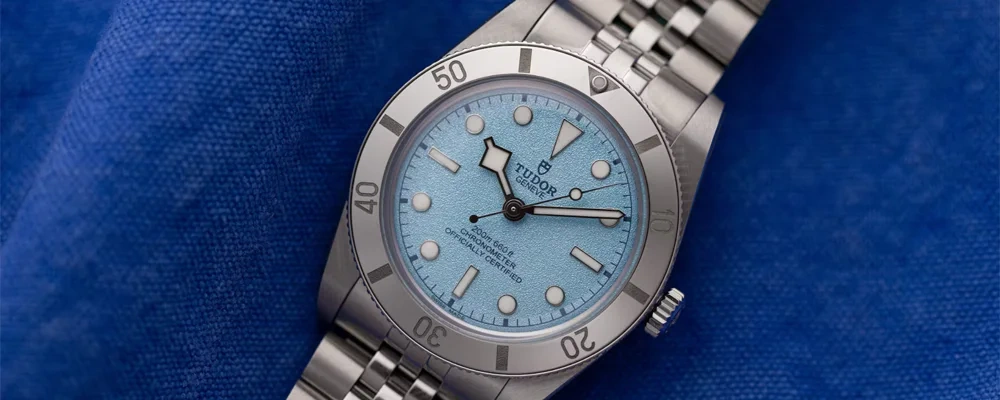Touching the Sky - The Santos
The world of luxury watches has its share of iconic timepieces, but none quite like the Cartier Santos. This square-shaped beauty, Cartier's very first wristwatch, has earned its place in the history of timekeeping with its unique mix of functionality, style, and charm. Let's dive into the story of the Santos, from its beginnings to its modern interpretations.
Photo source: Cartier
Alberto Santos-Dumont: The Pioneer
The Santos watch owes its existence to Alberto Santos-Dumont, a Brazilian aviator who had a great passion for flight. Born in 1873, Alberto grew up around his father's engineering projects, which fueled his love for modern machines. In 1892, he moved to France and became captivated by everything high-tech, from cars to bikes. But his true calling was the sky.
Santos-Dumont made history when, in 1901, he won the prestigious Deutsch Prize by flying from Parc de Saint-Cloud to the Eiffel Tower and back in under 30 minutes. This feat made him an aviation legend.
Beyond flying, Alberto Santos-Dumont was part of the high-society crowd in Paris, where he became friends with Louis Cartier, a fellow innovator in the world of watches.
Photo source: Cartier
Louis Cartier's Clever Invention
In 1904, Louis Cartier surprised his friend Santos-Dumont with a wristwatch, after Santos complained to him about the inaccuracy of pocketwatches when flying, marking the birth of the iconic Santos design. This square watch was designed for convenience during short flights, changing how people wore their timepieces. Its unique shape, visible screws, and elegant lines were unlike anything seen before - a watch worth the legacy of Cartier.
Photo source: A Collected Man
Art Deco: Timeless Style
The Santos-Dumont design embodied the Art Deco movement, a celebration of clean lines, new shapes, and a bold vision of the future. As Paris embraced this cultural shift in the early 20th century, Cartier's square masterpiece became a symbol of elegance and modernity.
Photo source: A Collected Man
Santos-Dumont Today: A True Classic
Today, the Santos-Dumont watch remains a symbol of style. It has evolved from a pilot's tool into a definitive dress watch. Pierre Rainero, Cartier's heritage and style director, highlights the watch's ability to adapt to changing lifestyles while preserving its original charm.
The Santos-Dumont reached mythic status in the late '90s with the Collection Privée Cartier Paris (CPCP), featuring a coveted platinum edition with a salmon-colored dial. This showcased the watch's everlasting desirability.
In 2019, the contemporary Santos-Dumont returned to Cartier's core collection, captivating watch enthusiasts with its elegance. Its lasting design is a testament to Cartier's expertise in shaping the world of luxury.
Photo source: Cartier
Santos de Cartier: A Bold Alternative
The Santos de Cartier offers a bolder take on Santos-Dumont's iconic silhouette with its distinct personality. While the Santos-Dumont is thin with leather straps, the Santos de Cartier makes a bold statement.
In 1978, Cartier introduced the Santos de Cartier, a sportier and more affordable version featuring steel and gold accents. It embraced the trend of luxury sports watches and found success in the ever-changing watch landscape.
Photo source: Cartier
Skeleton Watches: A Showcase of Craftsmanship
Cartier's reputation extends to intricate skeleton watches. The Maison was among the first to create dedicated skeleton movements, starting with the 9611 MC caliber. This approach, characterized by a ground-up design to showcase the movement, reflects Cartier's skill in balancing the opulent and tasteful.
In 2022, Cartier unveiled three new Santos de Cartier Skeletons, featuring striking colors and masterful craftsmanship. These designs continue to push the boundaries of watchmaking, highlighting the enduring charm of the Santos silhouette.
In conclusion, the Cartier Santos watch stands as a timeless masterpiece that bridges the worlds of aviation and horology. Its journey from its origins with Alberto Santos-Dumont to its modern interpretations showcases the everlasting charm of this iconic timepiece. With each passing era, the Santos continues to capture the essence of style, innovation, and sophistication, securing its place in the history of watchmaking.
Related Articles
Richard Mille re-releases their signature model in titanium - is it a good choice?

